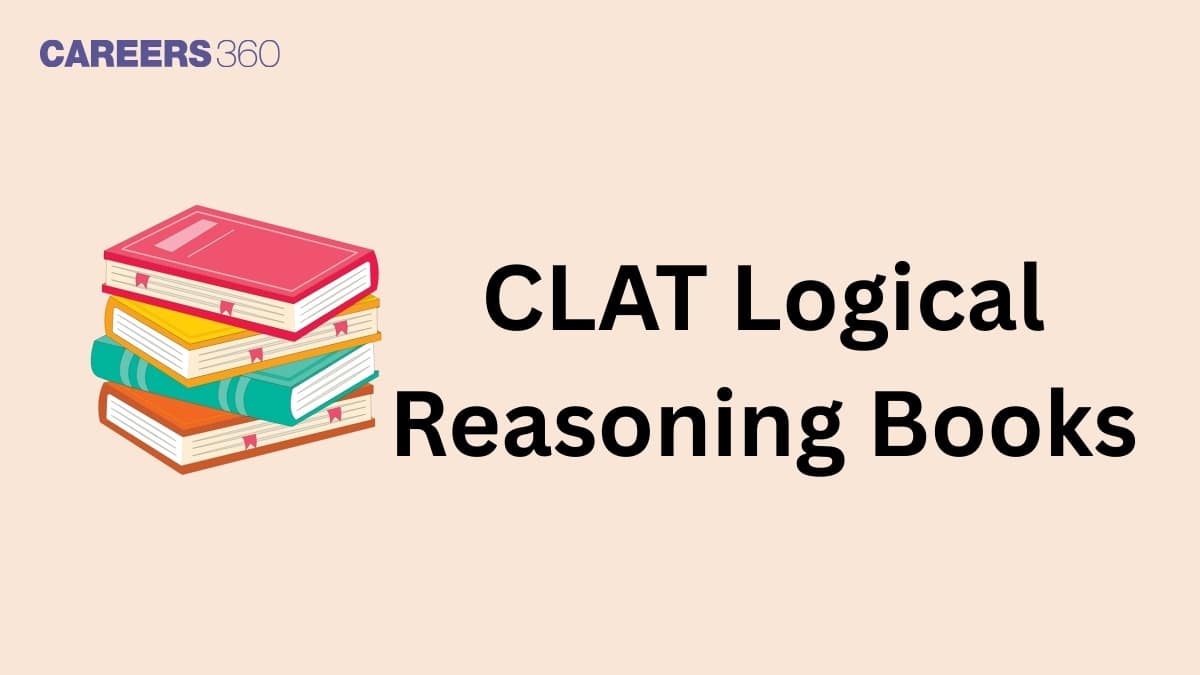Jindal Global Law School Admissions 2026
Ranked #1 Law School in India & South Asia by QS- World University Rankings | Merit cum means scholarships | Early Admissions (Pahse 2) Deadline: 28th Feb’26
The Common Law Admission Test (CLAT) is one of the most competitive law entrance exam in India, through which it allows admission into the participating National Law Universities (NLUs). The CLAT exam tests the candidates in five key areas: English language, legal reasoning, logical reasoning, general knowledge and current affairs and quantitative techniques. Here, the logical reasoning section is a crucial part of the CLAT syllabus; it specifically tests the candidates' ability to understand and analyse patterns, analogies, and analytical reasoning. The CLAT toppers in the past have recommended that candidates planning to appear for the exam should refer to the CLAT books 2027 for better preparation.

Using the CLAT logical reasoning books will assist in tackling the challenging topics and will increase candidates' probability of getting a good score in CLAT 2027. Some of the best logical reasoning books for CLAT include A Modern Approach to Logical Reasoning, Legal Awareness and Logical Reasoning by Pearson, and Wiley's Exam Expert Approach to Logical Reasoning. These well-structured CLAT logical reasoning books include organised information, which enhances time management and test-taking techniques.
Particulars | Details |
Type of questions | Multiple Choice Questions (MCQs) |
Total questions | 22-26 |
Weightage | 20% |
Number of passages | 4-5 |
Difficulty level | Moderate-Difficult |
Total marks | 22-26 |
Important topics | Syllogisms, Blood Relations, Analogies |
Candidates should seek the best CLAT logical reasoning material for preparation. These books will help students prepare for the entrance exam. Interested students planning to appear for CLAT may also obtain free CLAT preparation books in PDF format.
Books | Key Highlights |
Verbal and Non-Verbal Reasoning by R.S. Aggarwal | - |
Legal Awareness and Logical Reasoning by Pearson |
|
Logical Reasoning: A Complete Book by Adda247 | - |
Logical Reasoning for CLAT by Divya Kumar Garg |
|
Legal Awareness and Logical Aptitude by AP Bhardwaj |
|
The last-minute preparation for the CLAT 2027 requires more effort by students. Candidates should focus more on revising rather than learning new topics. Here are a few last-minute preparation tips for CLAT 2027.
Solve as many mock tests as possible to get comfortable with the exam pattern and increase the solving speed.
Candidates must refer to the best recommended CLAT 2027 books for their preparation.
Avoid taking up new concepts that are difficult to understand and instead focus on topics that can be tackled quickly.
Ranked #1 Law School in India & South Asia by QS- World University Rankings | Merit cum means scholarships | Early Admissions (Pahse 2) Deadline: 28th Feb’26
Among top 100 Universities Globally in the Times Higher Education (THE) Interdisciplinary Science Rankings 2026
You may also check:
On Question asked by student community
Since you have not specified your category, I will answer for all categories. A CLAT rank of 38169 (typically 40-45 marks) makes admission to top NLUs difficult. For General candidates, chances are nil. Even for OBC, SC, and ST categories, admission is primarily possible only through state domicile quotas or
After the CLAT results are declared, candidates participate in a centralised online counselling process managed by the Consortium of NLUs. Eligible candidates register on the official portal, submit their NLU preference list , and pay a counselling fee. Seat allotment happens across multiple rounds based on rank, category, and preferences,
Hi, you can apply for admissions in Nirma University, NFSU Ahemdabad, Alliance, IPU University and affiliated instiutes (in case you are reserved category candidates), UPES Dehradun, BITS Law School etc.
Start preparing for CLAT by first understanding the exam pattern and syllabus, which includes English, Current Affairs, Legal Reasoning, Logical Reasoning, and Quantitative Techniques. Make a simple daily routine and begin with basics read newspapers regularly for current affairs, practice comprehension passages for English and legal sections, and solve basic
Hello,
With a CLAT AIR of 33599 and SC category rank of 2103, and being a Delhi domicile, your chances at IP University (GGSIPU) are moderate to good, especially in later counselling rounds.
Based on previous year trends, some IPU-affiliated law colleges have closed at higher SC category ranks, so
Among top 100 Universities Globally in the Times Higher Education (THE) Interdisciplinary Science Rankings 2026
NAAC A+ Accredited | Among top 2% Universities Globally (QS World University Rankings 2026)
Excellent curriculum; an impressive range of electives, besides core law courses. Up to 100% merit scholarship on a first-come, first-served basis
Moot Court | Mock trials | Legal Aid Clinic
Admissions open for B.A. LL.B. (Hons.), B.B.A. LL.B. (Hons.) and LL.B Program (3 Years) | School of Law, MRU ranked No. 1 in Law Schools of Excellence in India by GHRDC (2023)
NAAC A++ Accredited | Ranked #11 by NIRF